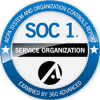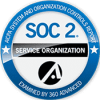While it’s clear that effective team-based care requires a high level of collaboration across medical providers, care coordination becomes exponentially more complicated when complex health issues require coordination with services outside the medical realm to improve patient well-being, especially when access to critical resources is not equitable. Securely delivering the right information at the right time and place across the many services required to care for vulnerable populations—and transparency with patients and their families—is a difficult obstacle for care coordination systems to overcome.
Fully integrated, whole-person care requires a holistic approach to care to address the complex and interlocking physical, behavioral, emotional, and social issues that complicate effective treatment. Bringing providers together requires a technology solution that seamlessly interconnects disparate resources and enables providers, plans, and community partners to collaborate in an organized way according to the needs of each individual patient.
Page Content
Care Coordination that Includes SDOH Improves Health Equity
Addressing social determinants as an integral part of care management programs improves health equity by mitigating disparities in healthcare access and quality. A comprehensive assessment of patient needs that includes psycho-social issues such as socioeconomic status, education, and housing can help you identify barriers to care—such as lack of transportation or healthy food—that prevents even the highest quality treatments from being effective.
Care coordination that includes social determinants of health (SDOH) can also close the gap in health outcomes between different populations. By enabling equitable access to preventative care, chronic disease management, and early intervention, care coordination can level the playing field to improving health outcomes for underserved populations and communities, including Medicaid, Medicare Advantage, and dual-eligible populations.
Effective care management programs enhance health equity by:
- Personalizing care to each person’s unique health needs and circumstances to ensure that patients receive the right care at the right time while considering their cultural, linguistic, and socioeconomic background
- Delivering culturally responsive care that is sensitive to the cultural beliefs, preferences and practices of each patient to foster trust and engagement
- Promoting health literacy to empower patients, enable more informed decisions, and improve understanding and self-management of conditions
- Connecting patients to community resources and support services to help mitigate barriers that impact health and well-being
Read more about how to integrate social determinants of health to improve outcomes without sacrificing profitability.
Incedo Supports Care Coordination across Interdisciplinary Teams
InfoMC provides a state-of-the-art, integrated enterprise care management platform—called Incedo—that is ideal for team-based care. Incedo supports care coordination and management across interdisciplinary teams, enabling the development and implementation of person-centered care plans that address each individual’s needs. Ideal for Medicaid and Medicare Advantage populations and preconfigured for the Special Needs Plan (SNP) model of care, Incedo also enables care teams to engage each individual in his or her plan of care.
The Incedo Care Management solution includes a care team portal that enables care team members—health plan, providers, patients and caregivers, and community stakeholders—to collaborate and coordinate care in real time. Care team members receive access to critical health information including a complete view of a patient’s clinical history across the continuum of care, securely controlled via role and permissions.
This supports proactive engagement and participation in the member’s plan of care, and provides the ability to:
- Access the member’s care plan
- Complete evidence-based assessments
- Communicate in real time
- Monitor care plan barriers and progress
- Add or update concerns, interventions, and goals
- Send messages and reminders
- Track measures and outcomes
Incedo also enables you to capture SDOH data in a way that is most effective for your organization. Assessment results are captured in the care plan, and can automatically trigger workflows and be used alongside other medical, behavioral, and psychosocial information as part of a comprehensive, whole-person approach to an individual’s well-being.
Learn More
To learn more about how InfoMC can help you with your care coordination challenges, contact us today.








